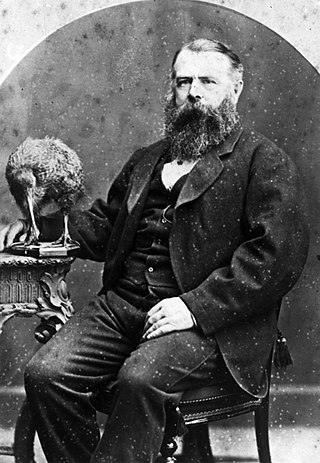Top Qs
Timeline
Chat
Perspective
Thomas Potts (naturalist)
New Zealand naturalist, ornithologist, entomologist and botanist (1824–1888) From Wikipedia, the free encyclopedia
Remove ads
Thomas Henry Potts (23 November 1824 – 27 July 1888) was a British-born New Zealand naturalist, ornithologist, entomologist, and botanist. He also served in the New Zealand Parliament from 1866 to 1870.

Biography
The son of a small arms manufacturer, he emigrated to New Zealand in 1854, and recorded many natural observations as well as species that were then new to science, such as the black-billed gull and the great spotted kiwi.
In 1866 he was elected to the Mount Herbert electorate after William Sefton Moorhouse who had won the seat in the 1866 general election declined the seat. Potts retired from Parliament in 1870.[1]
In the 1860s and 1870s, Thomas Potts was an early campaigner for areas of New Zealand to be set aside as nature reserves to save many bird species from extinction, after the deforestation of large areas of mainland New Zealand.[2] Potts owned Ohinetahi for several years.[3][4]
The standard author abbreviation Potts is used to indicate this person as the author when citing a botanical name.[5]
Remove ads
References
External links
Wikiwand - on
Seamless Wikipedia browsing. On steroids.
Remove ads
